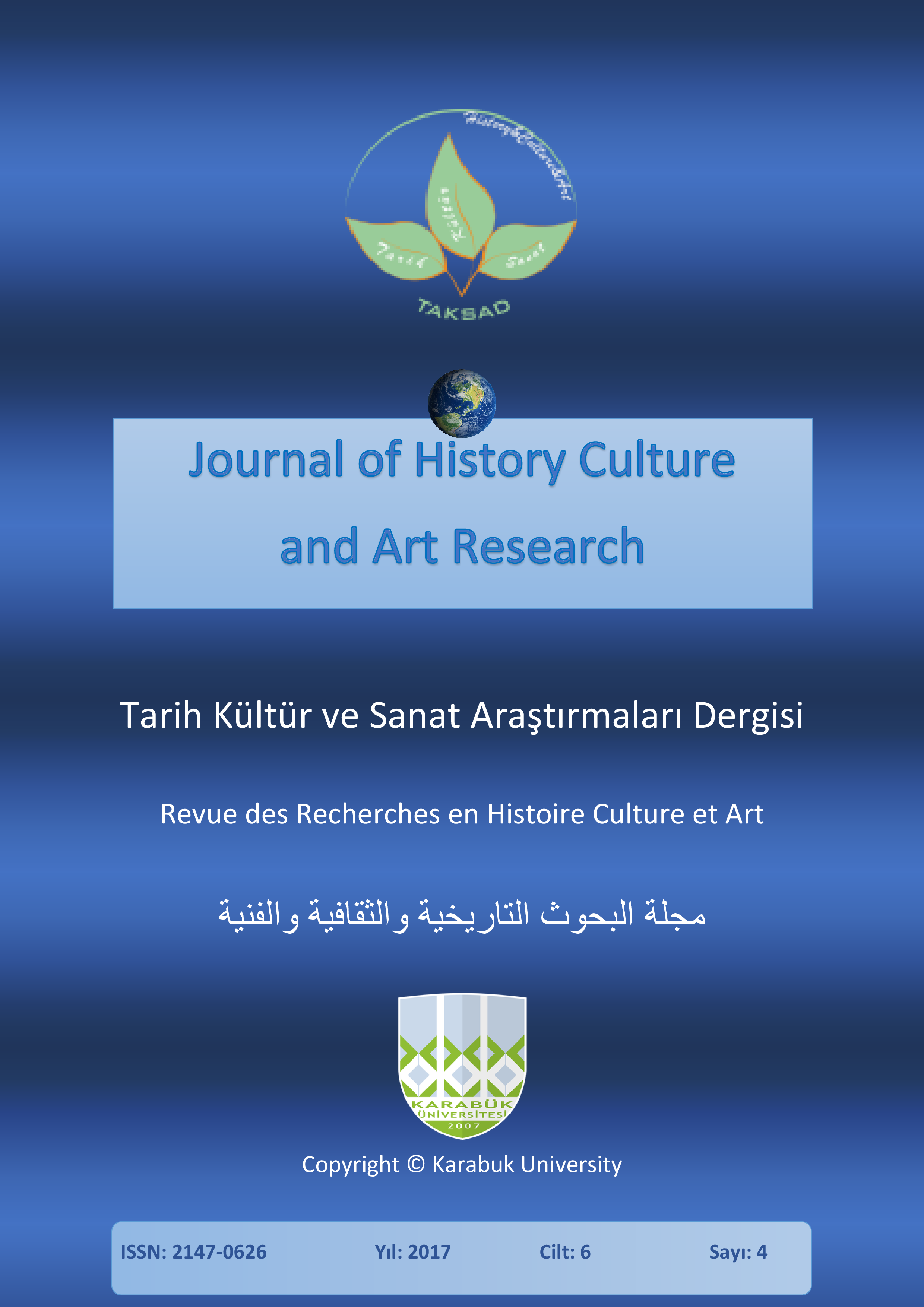Behavioral Pattern in the United States in the Face of Upheavals of Arab Countries
DOI:
https://doi.org/10.7596/taksad.v6i4.1137Keywords:
United States, Security, Arab world, Stability, Middle East, Foreign policy, Power, Arab Countries, Arab spring, Hegemony.Abstract
Conditions and upheavals, by their characteristics, including people opposition with governments and alteration in regional order, have challenged the US strategic interests in the Middle East region and forced the authorities of Washington to manage and strategize upheavals. The type of US encounter with the trend of upheavals, approach of the ruling regime, the future of people movement and available alternative, interests, and security of Israel and contradiction between strategic interests and democratic principles were amongst the most important issues facing the United States. The present article is seeking to find the answer to this question that what sort of relationship does exist between United States policies in the Middle East from one hand and recent upheavals in Arab countries on the other hand? The assumption of the article is that in the past two decades the one sided role of the US in forming the upheavals of Middle East has changed into a bilateral relationship and the behavior of this country in the process of recent upheavals, affected by the presence of the people of Arab countries in internal politics of their own country in numerous cases has changed into a reaction behavior. Finally, it should be said that contrasts between society and government in Arabic Middle East, is considered as one of the prominent challenges of the US in decision-making process and management of region unrests. On the other hand, the lack of a specified instruction and strategy by Americans is another problem of the US in this region.
References
Dadush, Uri & Dunne, Michele (2011). "American and European Responses to the Arab Spring: What's the Big Idea?". The Washington Quarterly.
Dehoshyar, Hossien (2007). Foreign policy and grand strategy of the United States. Tehran: Qumes publications.
Deputy of foreign politics researches (2011). "The approach of America to the conflict of Middle East". Middle East and Persian Gulf Studies group, strategic researches center, conclusion of the meeting, number 160.
Hass, Richard N. (2011). "The Arab Spring Has Given Way to Long, Hot Summer". Council on Foreign Relations.
Heilbrunn, Jacob (2001). "Neurons and the Revolution". Foreign policy.
Hormozi, Shani (2011). Upheavals of the Arab World and different approaches in foreign policy of the America, strategic report, No 357. Deputy of foreign policy researches, strategic research center,Mordad.
Kaplan, Robert D. (2011). "The New Arab world order". Foreign policy.
Kegoli, Charls W. & Witkof, Ojin R. (2009). Foreign policy of America; pattern and trend, (3rd ed.). Translated by Asqar Dastmalchi. Tehran: International and political studies office.
Keiswetter, Allen (2011) "The Arab Spring: Implications for Us policy and Interests". Middle East Institute. Accessed at: http//:www.mei.edu
Kristol, William (2011). "Stand for Freedom". The Weekly Standard, Vol.16, No. 21.
Maures, Tim (2011). "Ignatius: US Must Re-Prioritize Foreign policy Objectives to Assure Arab Spring Transforms the Region". Belfer Center programs or projects: the future of Diplomacy project.
Monfared, Sey Qasem (2011). America and the dimensions of the plan of military withdrawal from Afghanistan, strategic report. The center of the strategic researches, number 386.
Moshirzade, Homeyra (2005). Evolution in international relation theories. Tehran: Samt.
Pew Research Center (2011). Arab Spring Fails to Improve US Image, Global Attitudes Project.
Rozna, James (2001). Security in a chaotic world, inserted in the critical assessments in the field of international level. Translated by Alireza Tayeb. Tehran: Ney publications.
Terrill, W. Andrew (2011). The Arab Spring and the Future of US Interests and Cooperative Security in the Arab World. Army War College.
The Deputy of foreign policy researches (2011). Egypt upheavals and foreign policy of America, the group of Persian Gulf and Middle East studies. Strategic research center, meeting conclusion, No 153.
The Deputy of foreign policy researches (2011). The internal and external consequences of the Egypt movements for freedom, the group of Persian Gulf and Middle East studies. Strategic research center, meeting conclusion, No 150.
UN Report (2002). Arab Human Development Report.
Waezi, Mahmood (2011). Obama’s administration approach to Islam World: change or continuity of America’s policies. Foreign relations journal, strategic studies research institute, 4th year, No 1, Bahar.
Waezi, Mahmood (2011). Political crisis and social movements in Middle East; theories and processes, international and political studies office. Tehran.
Wofowitz, Paul (2011). "The Case for Backing Libya's Rebels". The Wall Street Journal.
Zahrani, Mostafa (2011). Realistic idealism: the base of the Obama’s administration action in Middle East uprisings. Foreign relation journal, strategic researches center, 3rd year, No 4, Winter.
Downloads
How to Cite
Issue
Section
License
All papers licensed under Creative Commons 4.0 CC-BY.- Share — copy and redistribute the material in any medium or format
- Adapt — remix, transform, and build upon the material for any purpose, even commercially.
Under the following terms:
Attribution — You must give appropriate credit, provide a link to the license, and indicate if changes were made. You may do so in any reasonable manner, but not in any way that suggests the licensor endorses you or your use.
- No additional restrictions — You may not apply legal terms or technological measures that legally restrict others from doing anything the license permits.







